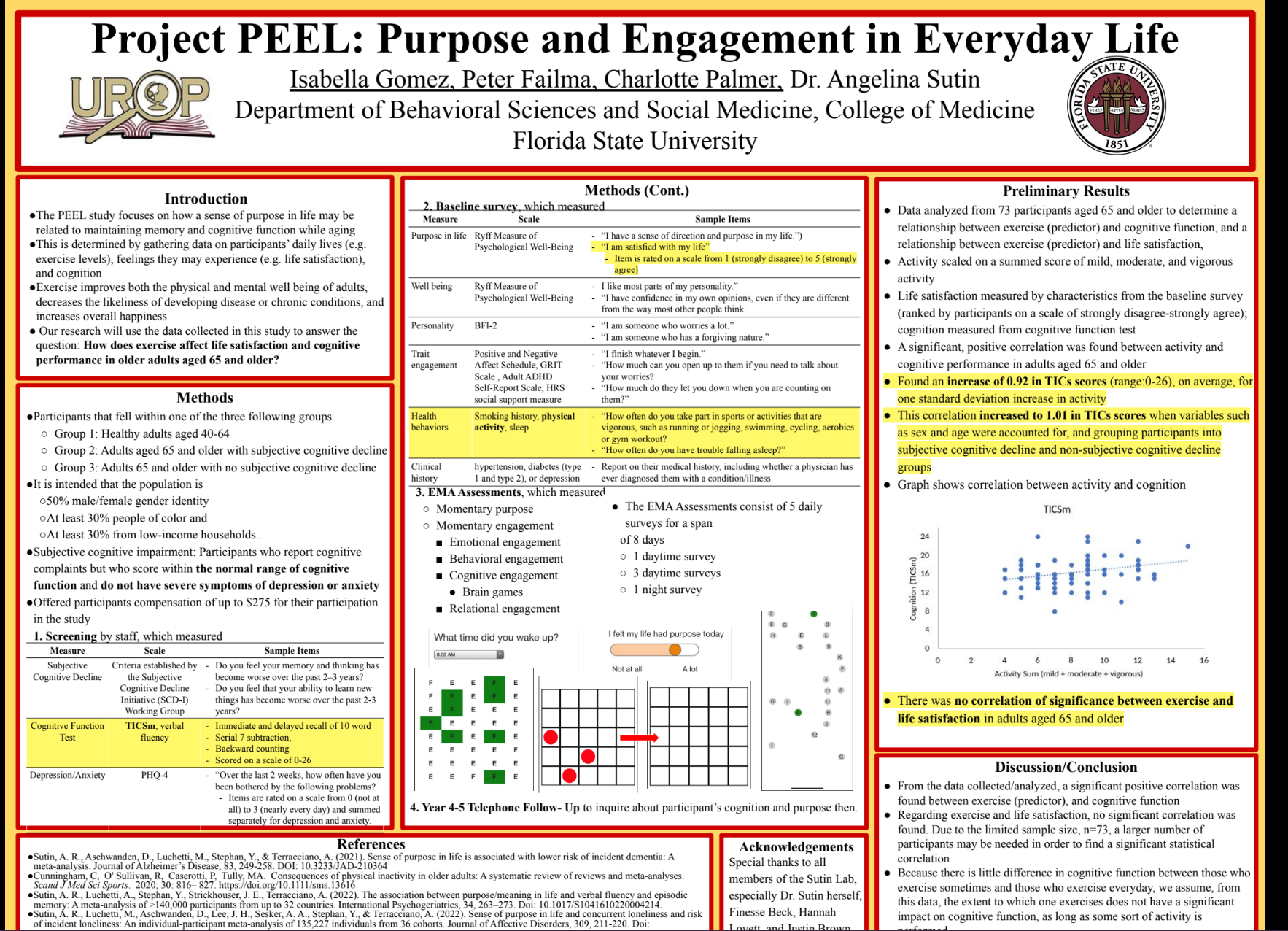Research Symposium
23rd annual Undergraduate Research Symposium, April 6, 2023
Peter Failma Poster Session 4: 4:00 pm - 5:00 pm/ Poster #64
BIO
I am a sophomore from the local Tallahassee area, majoring in Public Health. I hope to pursue a career in healthcare after graduating, as a provider or through a branch of public health. I applied to participate in this particular study because I wanted to learn more about how aspects of mental health, such as a sense of purpose, may show effects through cognitive function. I further gained interest in learning how exercise and life satisfaction may relate to cognitive function through this project.
Project PEEL: Purpose and Engagement in Everyday Life
Authors: Peter Failma, Dr. Angelina SutinStudent Major: Public Health
Mentor: Dr. Angelina Sutin
Mentor's Department: Behavioral Sciences and Social Medicine Mentor's College: College of Medicine Co-Presenters: Isabella Gomez, CJ Palmer
Abstract
The purpose of this study, Purpose and Engagement in Everyday Life (PEEL), is to obtain a better understanding of the relationship between daily cognition and a sense of purpose in life. This presentation specifically looks into a relationship between exercise and life satisfaction and cognition in adults aged 65 and older. Data collection, for each participant, includes a baseline survey regarding their health and well-being, an interview in which they are given cognitive tasks, daily assessments of their mood and well-being as well as additional cognitive tasks, and a final survey including cognitive tasks, and questions on well-being in 2-3 years. Preliminary results, only including the baseline survey and interview data, in the 15 participants analyzed so far, show adults aged 65 and older who exercise (to any extent) perform better on cognitive tasks than those who do not exercise. There is no clear distinction between cognitive function and the amount to which a participant exercises or type of exercise (e.g. plays sports everyday, walks once a month, etc.). Regarding life satisfaction, there is no clear correlation between exercise and how satisfied participants are with their lives. Results are preliminary, and a substantial increase in sample size will be needed in order to better determine if exercise, and possibly to different extents or types of exercise, is linked to cognitive function and satisfaction of life in adults aged 65 and older.
Keywords: Purpose, exercise, satisfaction, psychology, cognitive

